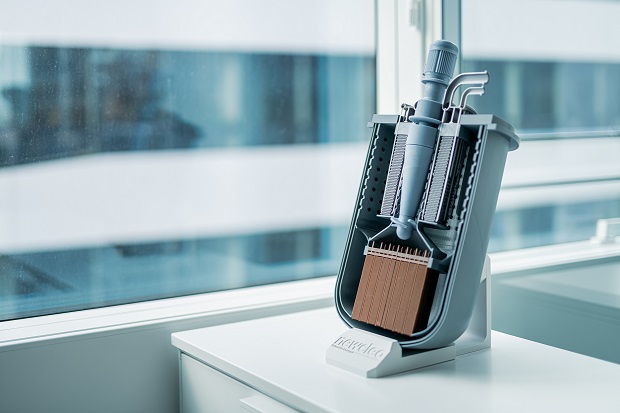A closed mini reactor design application is being studied for use on large vessels, with potential to decarbonise the naval shipping industry
Newcleo, a clean and safe nuclear technology company developing innovative Generation IV reactors using nuclear waste as fuel, has signed an agreement with global shipbuilding company, Fincantieri and RINA, an inspection, certification, ship classification and consulting engineering organisation.
The agreement will see the three companies combining their expertise and innovation experience to carry out a feasibility study for nuclear applications to the shipping industry, including newcleo’s lead-cooled small modular reactor (SMR) technology.
The deployment of newcleo’s LFR (Lead-cooled Fast Reactor) for naval propulsion would involve placing a closed mini reactor on vessels as a small nuclear battery producing a 30MW electric output. This would require infrequent refuelling (only once every 10-15 years), very limited maintenance and easy replacement at end of life.
Using clean nuclear energy to power marine vessels would help rapidly decarbonise a sector grappling with huge fossil fuel consumption and its consequent carbon emissions. The shipping industry, via the International Maritime Organisation (IMO), recently approved a new set of targets for GHG (Greenhouse Gas) emission reduction, to reach net-zero GHG emissions by or around 2050.
While the merchant shipping industry still carries 90% of the world’s goods, and the fourth IMO GHG Study 2020 confirms that its carbon dioxide emissions are less than 3% of the total global man-made CO2 emissions, the actions of the big players of this industry have the potential to drive trends and markets.
Also, using nuclear power on ships would safeguard the marine ecosystem in the event of an accident. With newcleo’s design, the liquid lead inside the reactor would solidify as it cools down in contact with the cold water, enclosing the reactor core in a solid casing, and containing all radiation thanks to the shielding properties of lead.
Finally, the newcleo naval propulsion reactors would eliminate the current need for frequent refuelling, and at the end of its life, the whole LFR unit would be simply removed and replaced with a new one in the ship, and the spent unit taken away for decommissioning and reprocessing.
According to Stefano Buono, newcleo Chairman and CEO, Fincantieri and RINA are two large players in the shipping sector, and combining their expertise with the propulsion technology innovation can bring a real solution to the issue of carbon emissions in maritime transport.
“Newcleo’s ambition is to contribute to accelerating decarbonisation and providing clean, sustainable and affordable energy to meet the needs of communities and businesses,” he says.
Test Facility
Part of the development process includes stringent test procedures and newcleo is conducting these at the Brasimone ENEA Research Centre near Bologna in Italy.
Established more than half a century ago to study the development of fast breeder reactors, the centre is now engaged in the testing and research of modern nuclear power sources including fusion reactors as well as metrology and metallography.
Since last year, part of the centre has been dedicated to the testing of newcleo’s equipment, where the company is working on all the non-nuclear aspects of the design. The company has performed some upgrades to the facility including an additional 16MW transformer to provide the power for the 10MW thermal resistors that are being used in the prototype of the product to simulate the nuclear fuel and allow the steam generators to be fully tested.
- UK manufacturing steps up to COVID-19 crisis - April 2, 2020
- Clustering Innovation - March 12, 2020
- A Global Monitor - March 6, 2020

